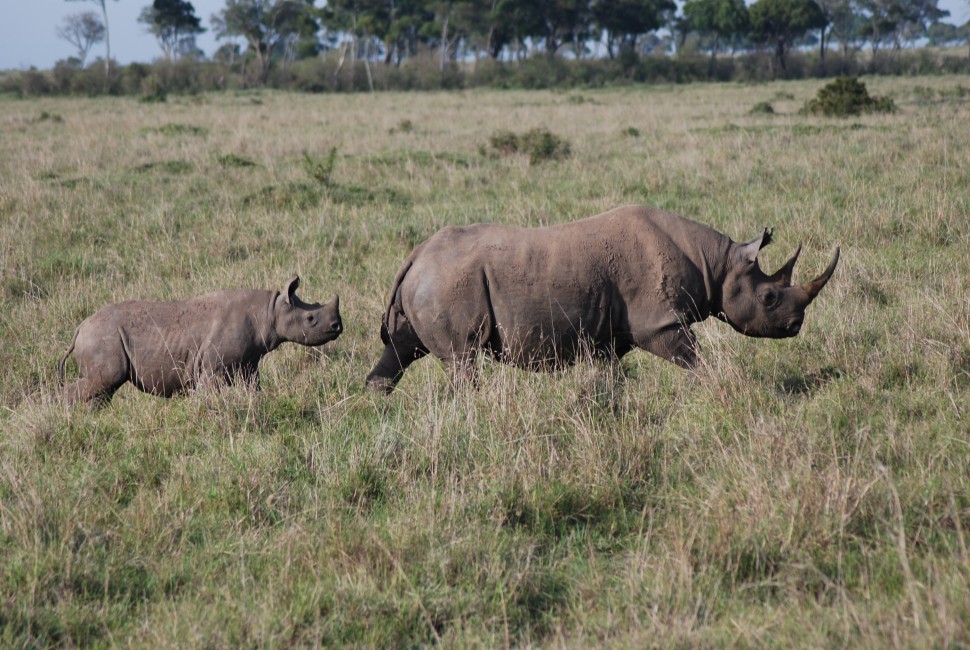
September 22, 2014
It’s All in the Timing
- as seen by -
 Tim Lewthwaite
Tim Lewthwaite
Finding a black rhino on safari can be difficult. They are large, they are gray, and in the grand scheme of things, they don’t move all that quickly. But still they can be elusive. They are solitary animals, that as browsers, prefer spending their time in dense bush land. Despite the challenges in finding them, I’ve always looked forward to the brief encounters Africa has offered.
One morning, in the Maasai Mara in southern Kenya, I was on safari with a friend. We came across a pair of hyenas bringing down a young wildebeest. It was a very raw encounter, and my companion was overwhelmed at the experience. We decided to move on. A kill on safari is a rare thing to witness, and I wondered if we had made the right decision.
A short while later, we came across a female black rhino with a calf. They walked parallel to our vehicle for a few minutes and then crossed the road in front of us before disappearing into a line of bushes. A few minutes earlier or later, and we would have missed the encounter entirely. I grabbed my camera and snapped away. My friend was also taking pictures quite happily with a smile on her face.
If there is a moral to this story it is, perhaps, don’t regret past choices as you never know what is around the next corner. If you are lucky, it might be a black rhino.
The International Union for Conservation of Nature (IUCN) lists the black rhino as Critically Endangered. There are approximately 5,000 roaming sub-Saharan Africa now, a population decline of 97.6% since 1960. Rampant poaching for their horn, first for dagger handles in Yemen, and more recently for traditional medicine markets in China and Vietnam, has led to this decline.
Nikon D80
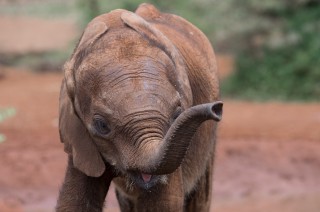
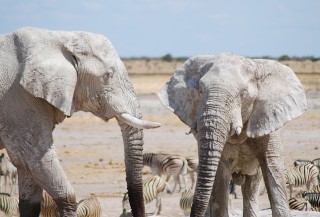
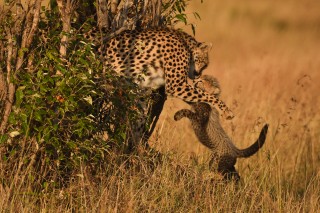
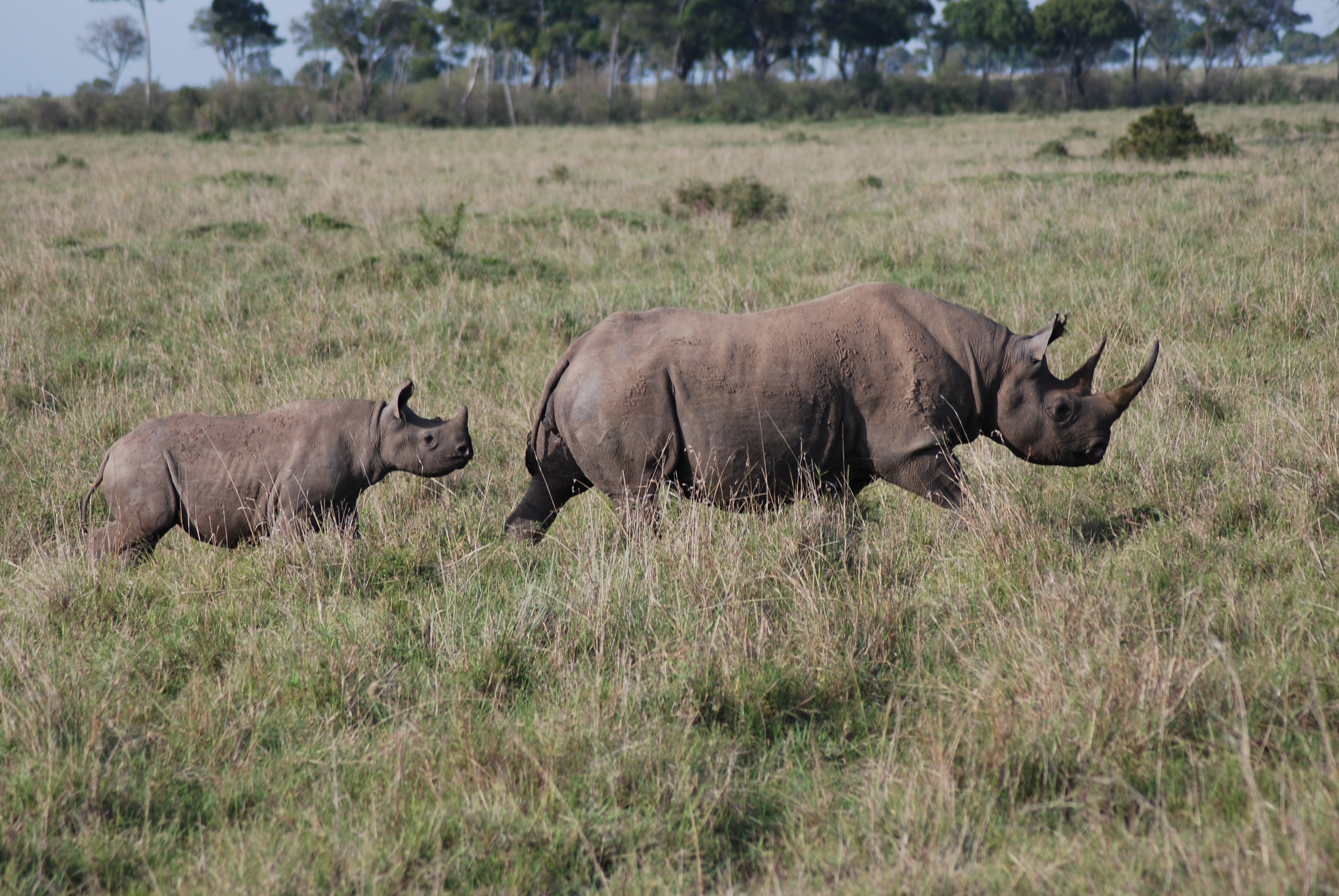
Comments